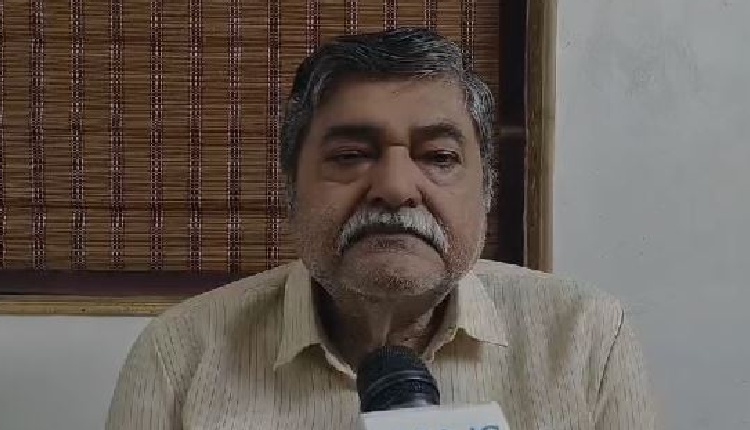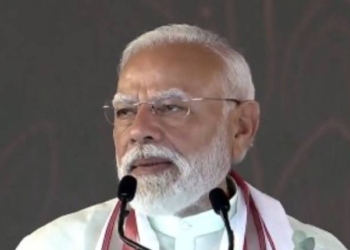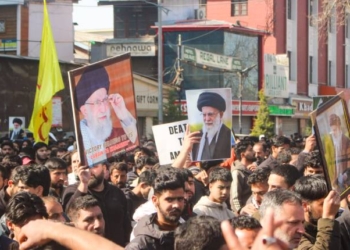Mumbai: In an exclusive interview with IANS, Arun Kejriwal, founder of Kejriwal Research and Investment Services, dismissed the latest Hindenburg Research report as merely a tactic of character assassination and a diversionary manoeuvre.
Here’s how Kejriwal expressed his views on the report during his conversation with IANS.
IANS: What is your opinion on the new Hindenburg Research report? Similar accusations have been made before, but nothing has come out of them so far?
Arun Kejriwal: They (Hindenburg) first made accusations against the Adani Group in January 2023, and now in August 2024. They are making accusations against the SEBI Chairperson. The SEBI is the same institution that had issued a show-cause notice to Hindenburg, and a response to that has not been provided in the past six months. It seems like a way to retaliate by making new accusations. The investment issues raised have already been clarified in SEBI’s previous statements and reaffirmed recently. SEBI has stated that any allegations regarding investments were addressed. Investment had been made following which she (SEBI chief) came out of the joint investment. This is in accordance with SEBI’s regulations. So, there is nothing new here; it seems to be a tactic of character assassination and a diversionary move.
IANS: Is Hindenburg reacting to SEBI’s actions by making these accusations as a way to protect itself?
Arun Kejriwal: Absolutely, by not responding to the notice, they (Hindenburg) have used this as a weapon five to six months later to raise new accusations. They have alleged some mistakes or conflicts of interest. It appears that they are trying to deflect attention by raising an issue that has no substantial basis. This entire situation seems to be a diversionary tactic.
IANS: Is Hindenburg, known for its short-selling strategies, targeting the company once more?
Arun Kejriwal: Hindenburg’s stated business model, as given on its website, involves identifying companies, publishing reports on them, and short-selling their stocks to profit from the resulting decline in share prices.
They have used this strategy with the Adani Group, resulting in substantial profits. However, I don’t believe the situation from January 2023 will repeat. Indian investors, including smaller ones, have become aware of these tactics.
This time, the accusations are directed at SEBI rather than the Adani Group, so it’s unlikely to cause significant negative impact on the market or the company. It appears to be a strategy aimed at profiting from stirring up issues.
IANS: Opposition parties are leveraging this situation to boost their political profile. What are your thoughts on this?
Arun Kejriwal: The opposition has found a new issue in the midst of other political events. With the recent budget session ending and other political unrest in neighbouring countries like Bangladesh, the opposition has seized on the opportunity to target major industrial groups with accusations.
They (opposition) aim to position themselves as the champions of transparency, working diligently to expose issues. However, it’s important to recognize that large business groups play a crucial role in generating employment and contributing to national prosperity. The opposition’s efforts appear to be focused on presenting themselves as the ones who are identifying and addressing the problems.
IANS: Accusations from foreign companies frequently emerge during budget or Parliamentary sessions. Could this be a part of a strategic or conspiratorial plan?
Arun Kejriwal: India’s economy is on track to become the third largest globally, with significant progress made over the past decade. This impressive GDP growth might not be welcomed by some countries, as they may view India’s increasing economic strength and self-reliance unfavourably. There could be underlying motives or conspiracies behind this opposition, though it may not be prudent to accuse specific individuals or groups at this time.
IANS: Does Congress trust foreign companies more than Indian companies and institutions?
Arun Kejriwal: It’s not necessarily a question of whether Congress trusts foreign companies more than Indian ones. However, it’s evident that in states where Congress is in power, contracts and work have been awarded to the groups currently facing allegations.
For instance, in Rajasthan, these groups received contracts even after a change in government. Allegations of corruption and favouritism often arise whenever work is assigned.
It’s important not to overinterpret this. Congress has been out of power at the Centre for several years, which might explain their tendency to politicise various issues.















